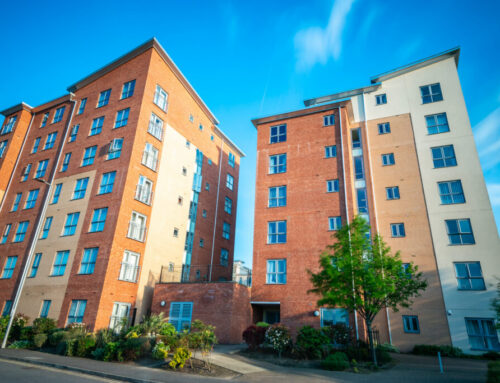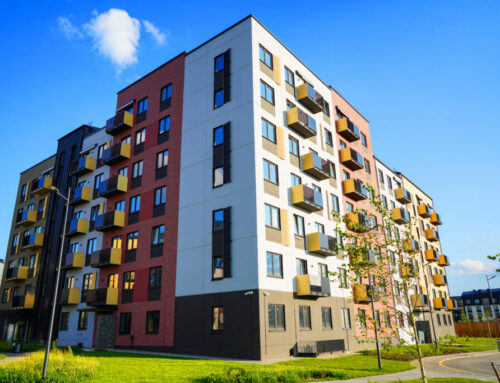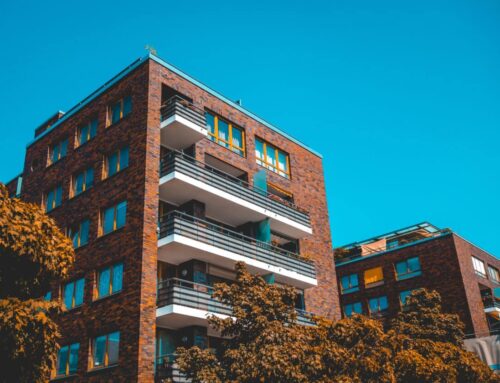Belinda Bagnall from Residentsline, provides valuable insights and practical advice on how flat owners can take proactive measures to prevent disputes.
Prevention is always better than the cure. This old adage is absolutely correct when it comes to leasehold living. Neighbours living side by side (and head to toe) in residential blocks of flats are likely to experience the odd issue with noise, access or other expected rubs.
For some, those small gripes can turn into full-blown disputes. These can end horribly, sometimes with outright arguments or even legal action. To avoid the stress, upset and possible expense, prevention is key. Here we’ll be discussing some of the simple, proactive steps you and your neighbours can take to promote harmonious living.Know Your Lease
We’ve lost count of the number of times we’ve pushed the importance of knowing your lease. Its important here as in any other aspect of leasehold living should be high-lighted. Familiarising yourself with the intricacies of your lease, particularly in respect to building rules, access requirements and both yours and your neighbours’ responsibilities, can be crucial to avoiding misunderstandings. You’re far less likely to be embroiled in a dispute if you are consistently behaving in line with the requirements of the lease. If your neighbour is violating their lease, you can politely refer them to the document. With repeated or more serious offences, you can refer to the lease when making a complaint to the Residents’ Management Company Directors or your building manager who will have to take your complaint seriously.Know the Rules
Outside of your lease, the building may have a set of rules that residents are asked to live by. Rules are there to help promote a harmonious living environment. You may not love or agree with all the rules but if they’re on the list, it normally means a very busy property manager or Director has deemed it worth their time to enforce, for good reason.Open Communication
This is a big one. It’s very easy these days to live in close proximity with utter strangers, never knowing each other’s names. This creates a breeding ground for discontent as neither party feels they can approach the other to discuss issues. We can’t recommend opening the flow of communication with your neighbours. Yes, this may mean acknowledging that you’ve lived side by side for 5 years without introducing yourself…but that embarrassment will be short-lived as at least it’s a shared embarrassment! Introducing yourself to and stablishing friendly communication with neighbours old and new is the best way to avoid any serious disputes. Little niggles can be ironed out quickly, without the need for building manager intervention. Those little gripes can’t then fester and be added to a list of little niggles that mean the slightest thing can be blown out of proportion…Respect Boundaries
This applies to both the legal, physical boundaries of ownership, and also the metaphorical boundaries that your neighbours may like you to observe. For example, you may not mind if people stop and have a chat outside your flat door, but someone else might find it annoying at best, or intimidating at worst. When it comes to common areas within your block of flats, make sure you’re not monopolising the space or making it difficult for others to use the space as they wish. Everyone should feel free to use the space and come and go as they please.Noise
Noise complaints are one of the most common sources for disputes among leaseholders. Besides the rules stated in your lease or clearly displayed in the building, neighbours just need to be mindful. You may not mind music playing until 11pm, but this may be far too late for your elderly neighbour next door or the young family living below- another good reason to get to know your neighbours. As a general rule, stick to the terms of your lease and keep noise to an absolute minimum. Usually beyond 9pm and before 8am to avoid any annoyance. If you’re planning a celebration, definitely let your neighbours know. Encourage them to let you know if there is an issue well ahead of time. You could also consider inviting them along. The same applies for any noisy renovations in the pipeline, although they may not appreciate an invite to witness those…Pets
The rules and building expectations around keeping pets should be clearly spelled out in your lease. Always check the lease before taking on a pet. If you’re allowed to keep your chosen companion within the rules of the lease, make sure you stick to the terms laid out. Beyond the stipulated rules, always be respectful of neighbours and keep pets up to date with vaccinations, worm and flea treatments to avoid any outbreaks amongst their pets. Be aware that some people may not be big animal lovers, have allergies or may even have phobias of certain animals. If you have a dog, it should be kept on the lead when in common areas. Not allowing them on any shared furniture would also help. Cats shouldn’t be allowed to roam the halls unless that has been agreed with all parties. Making sure their toileting is taken care of is also paramount. No neighbour wants to smell the litter box next door. In summary, it’s all just common sense. You can largely avoid issues by adopting an ‘treat others as I wish to be treated’ approach. This should also aligns with the building rules and your lease. Open communication and a friendly, non-confrontational approach can go a long way to avoiding any drama. Most people want to live in peace and harmony with their neighbours. Preventative measures like the above can help achieve just that.
Head to the Residentsline website for information on all of our products and services or, if you’d like to speak to one of our fantastic, specialist team, give us a call on 0800 281 235.




Leave A Comment